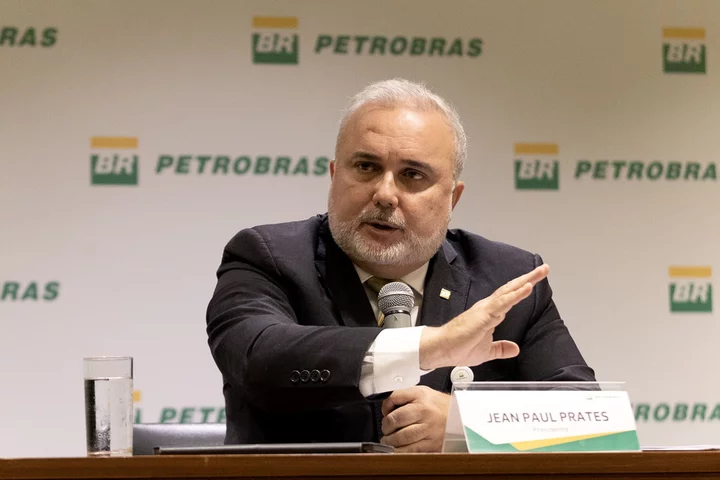Brazilian oil giant Petrobras is shielding domestic consumers from volatile global fuel-market gyrations, bowing to pressure from President Luiz Inacio Lula da Silva who made controlling gasoline costs a key election pledge.
Petroleo Brasileiro SA, as the company is formally known, will base prices on a combination of domestic and foreign factors, “taking into account the best alternative to customers,” it said in a statement on Tuesday. Petrobras wants to avoid passing on international price surges to motorists, and take advantage of the company’s “better production and logistics conditions.”
“With the new policy, Petrobras recovers the freedom to decide on prices,” Chief Executive Officer Jean Paul Prates said in a media briefing. “We now take our advantages into account.”
The decision, telegraphed by Lula and his cabinet since he was elected in October, marks a break with the policy that Petrobras adhered to since the mid-2010s of basing domestic prices on the cost of imported fuel supplies. Although that approach helped the company slash debt and pay dividends, it inflicted higher overseas prices on Brazilians, especially after Russia’s 2022 invasion of Ukraine triggered an international energy squeeze.
Investors who worried the government would take a more interventionist approach cheered the new policy, pushing Petrobras shares up as much as 5.3% for the strongest intraday gain in four months.
Read More: Petrobras’s Bumpy Board Election Signals Governance Risk
“The new fuel pricing policy doesn’t look as bad as the directive in previous Lula and Dilma administrations,” said Fernando Valle, an analyst at Bloomberg Intelligence. “But there are few details on exactly how replacement or marginal costs will be calculated, leaving plenty of room for outside interference on prices.”
The new policy means a “communion of interests” between the company and the new administration, rather than government intervention, Prates said. Prices won’t fall below profitability, he added.
Lula said in a video he’s “very happy” about the new Petrobras price policy, adding it’s “just the beginning” of a series of changes at the state-owned company.
Read More: Brazil Central Bank Calls for Patience as Lula Slams Rates
“There are some important risks that Petrobras needs to clarify on the new price policy,” Citigroup Inc. analysts wrote in a note. “The international import parity is really important to keep the import products flowing to the country, removing fuel shortage problems.”
Petrobras’ investors had already indicated unease at the prospect of government intervention by dumping shares in late October as Lula emerged victorious over former President Jair Bolsonaro.
Reducing the link to international prices opens up Petrobras to class-action lawsuits from shareholders as well as potential intervention by Brazil’s audit court and antitrust regulator. Brazilian corporate law punishes executive, directors and controlling shareholders if they take measures against a company’s best interest.
Petrobras said it remains committed to financial sustainability and that the new policy will allow it to carry out the investments included in its strategic plan.
Brazil has been struggling with stubborn inflation and high borrowing costs that have hindered economic growth. The government expects Petrobras’ new pricing policy to allow central bankers to loosen monetary policy.
“Petrobras will become more attractive to serious, long-term investors,” said Energy Minister Alexandre Silveira. “We are now moving to a commercial-freedom policy.”
(Updates with President Lula’s comments in eighth paragraph.)
Author: Maria Eloisa Capurro, Vanessa Dezem and Mariana Durao

